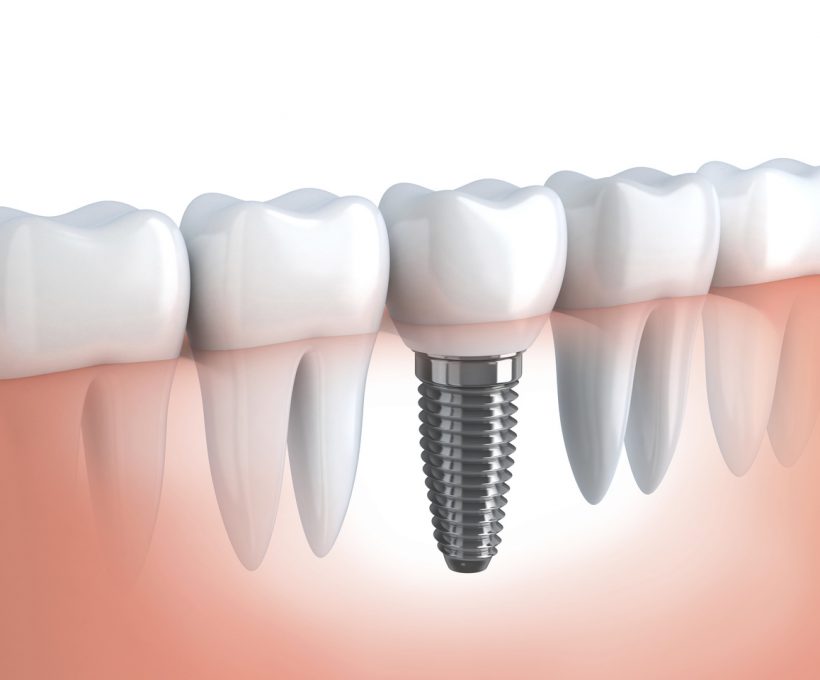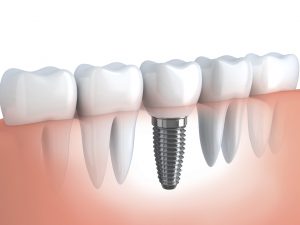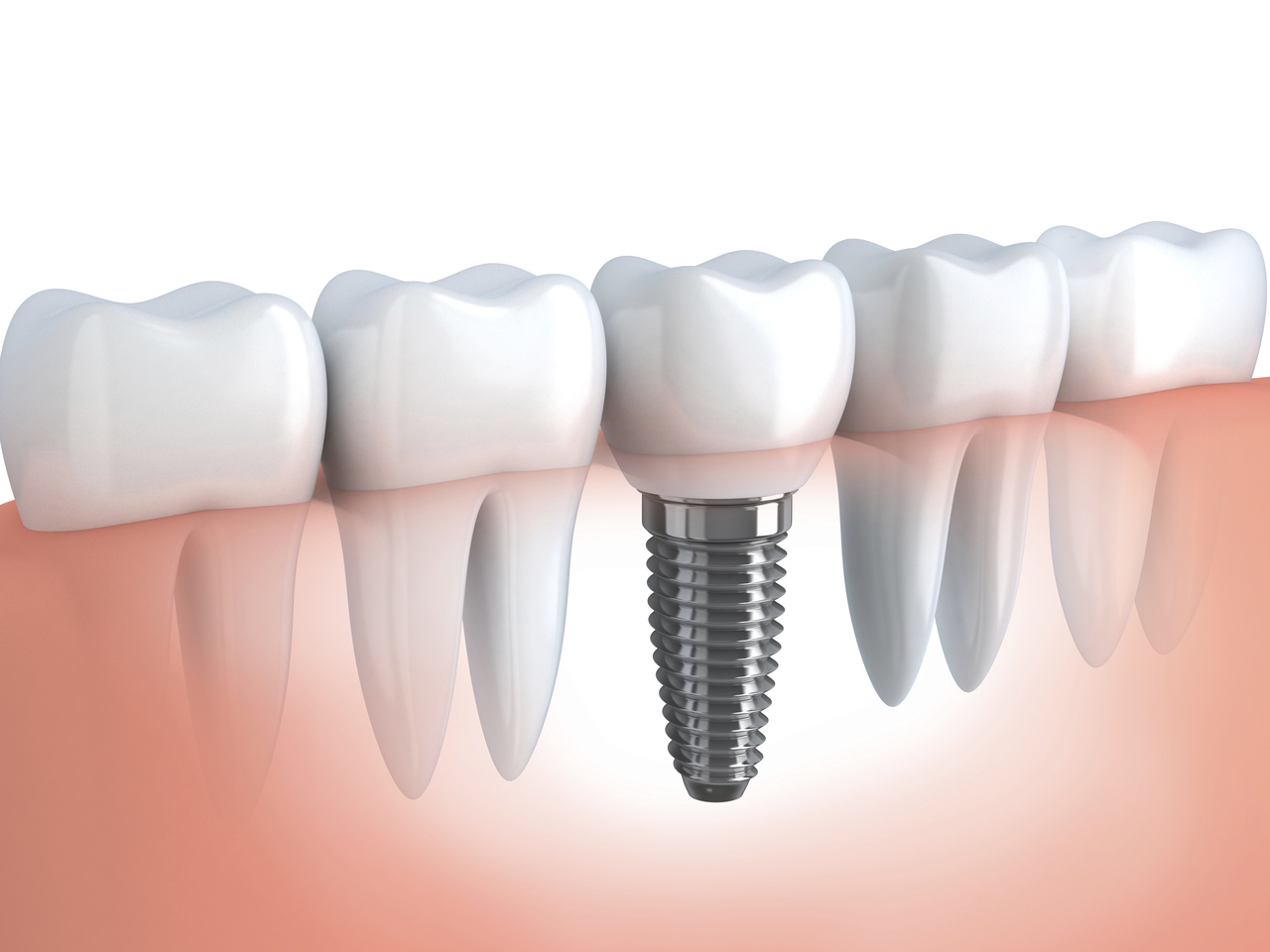

In science to this day, there is a dispute between supporters of two theories. The first one says that the smile comes evolutionarily from the veiled threat of using fangs, the second one, on the contrary, means that it means ingratiatingly surrendering due to the lack of teeth. However, we live in such advanced and pleasant times that the lack of dentition is no longer a problem, thanks to the widespread availability of dental implants. But what are they, what is worth knowing about them and are they safe?
Although it may seem quite unusual, prosthetics – the branch of medicine that deals with the restoration of tissue or organ defects – is one of the oldest in the history of science. We find examples of blindfolds or wooden prostheses as early as thousands of years before our era. Of course, those products are far from the quality of our modern, advanced prostheses.
In nature, animals have many mechanisms that allow them to regenerate damaged tissues. Most people probably know, even from nature films, that sand lizards can grow back a tail, and sharks can grow teeth. People, however, are not sharks either, we had to deal with and produce artificial dental implants.
The dentition is one of the most important things in human functioning, it allows us to bite and grind food, better facial expressions, or simply a high aesthetic standard. Many people are literally afraid that they might not have teeth. Unfortunately, none of us knows what can happen, which is why today the prosthetics industry of dental implants alone is worth billions of dollars around the world.
A dental implant is made of titanium, a material that people associate with durability by its very name. What is so important about it is the fact that it is indifferent to health, so it will not dissolve over time, will not rust and cause problems with its chemical nature. It may surprise some that the dental implant is mainly a large screw, what we see as a tooth, i.e. a crown, is only the finial.
Once the entire surgical procedure, including the incision, fixation and post-treatment rehabilitation period, including diet and pharmacotherapy, is completed, we can place the appropriate crown. Dental implants in this matter require the least amount of worries, because we are within our reach to create a relatively inexpensive, durable tooth of any shape. Research has shown that people, even in close contact with humans, are not able to identify which teeth are implants and which are natural teeth.
But what about the safety of such a procedure?
The first correctly performed, successful procedure was performed in 1913. Medicine has gone a long way since then, and yet dental implants are still not without problems and you should know it for your own good. There are at least three key points that need to be said.
The first is the operation itself. Of course, it is performed under anesthesia, this is not a problem, unless someone is terribly afraid of the dentist. The problem, however, may be the body’s response, which can be very different. The remaining condition of the teeth may have a negative effect on the assembly of the bolt and the catch. The more teeth that need to be replaced, the bigger the problem could be. Such a procedure of installing a dental implant must be performed fully correctly, as self-repair of the implant is impossible.
The second problem, possibly the biggest one, is the process of tooth accommodation, known as osseointegration. Osseointegration of a dental implant is a process of adapting a ready screw with an abutment and a crown to the rest of the dentition. This is where the so-called bridge comes into play, which is the part of the body that is pressed against by dental implants or by natural roots. Initially, the pain can be unbearable, and a poorly placed implant or lack of medication can make it difficult or impossible to adjust. High-quality dental hygiene and a diet in accordance with the doctor’s recommendations are required from the patient.
Titanium implants Warsaw
The last issue is that dental implants, although made of titanium and hand-formed plastic by a specialist, are not indestructible. Damage can occur in any area, both the crown itself, as well as the connector and the screw. The slightest damage a patient will experience and is detected during an x-ray inspection must be replaced from scratch, if at all possible. It is a very onerous process for people who did not pay attention to the above paragraph, i.e. the element of osseointegration. The doctor’s recommendations must be followed one hundred percent, otherwise we can do more harm to ourselves than we think.
However, are dental implants a popular and simply effective solution? Undeniably yes. Only seven to two percent of dental implants fail in the first five years. Patients usually complain about the nuisance of tooth accommodation, but no longer have such complaints about its use. Dental implants do not suffer from caries, are durable and aesthetic, allow you to enjoy the fullness of the teeth again. For all people with complete cavities, this is the best possible solution.
Sprawdź koniecznie
-
What are the benefits of studying in a private music school?
It cannot be denied that private music schools in Poland have many advantages. It is impossible…
-
The producer of the hall and the construction of the squash hall - practical information
The construction of a squash hall requires the manufacturer of tent halls to remember about many important…
-
The growing popularity of aesthetic medicine
Aesthetic medicine is a field that is developing more and more dynamically. Treatments for which celebrities are…
-
What dress to go to the wedding in?
Finding the perfect dress for a wedding party is a real challenge for many women. Everyone…
-
Are you building a house? Choose the best geotechnical services
The construction of each house is a huge event that means a lot, especially for…








